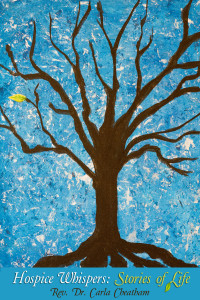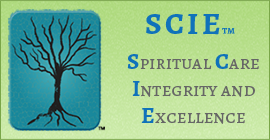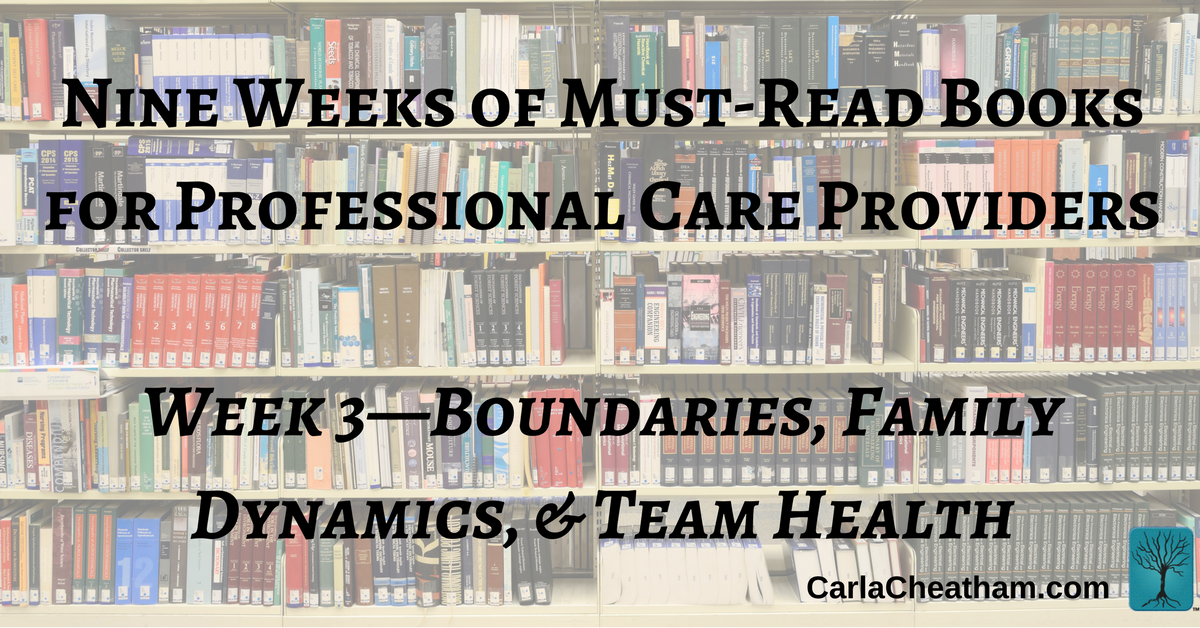
Nine Weeks of Must-Read Books for Professional Care Providers
Week 3—Boundaries, Family Dynamics, and Team Health
In honor of the highest-selling month for books, and the cold weather during which it’s more tempting to curl up and read, I’m posting those books and videos I most recommend to caring professionals in practice and to which I refer in my trainings.
Boundaries, Family Dynamics, and Team Health
We professional care providers deal with persons and families who are often in crisis, which is when all of their best and worst defense mechanisms and even most dysfunctional patterns can arise, tapping into our own!
The more we understand these dynamics, the better we can notice and heal them in ourselves, keep our own stuff from entering unhealthily into the situation before us, and even be healthier members of our teams and own families.
If we are hesitant to explore and consider these things, we must ask ourselves from where is our resistance coming? Why would we want to avoid the healing journeys we encourage those persons with whom we work to engage in?
These books will empower you to be better and healthier in every arena of your life, so the discomfort of what you might find if you start looking is definitely worth the price of admission!
Generation to Generation: Family Process in Church and Synagogue, Edwin Friedman. This helpful classic helps not just faith leaders but clinicians and leaders of any group to recognize family systems dynamics that can arise when we humans gather with all of our imperfections. The more we are aware of these dynamics, the more likely we will be to recognize them and avoid getting in the nasty middle of them.
With its simple, straightforward language, it helps even non-counselor types gain important knowledge, insight, and skills. Just read this. Trust me!
The Five Dysfunctions of a Team: A Leadership Fable, Patrick Lencioni. Written in an engaging story-telling style, this latest work from Lencioni portrays hurdles teams commonly face that hold them back from being cohesive and effective, as well as action plans for overcoming them. Any member of a team can benefit from having their eyes opened to the dynamics that can tear teams apart and the ideas that may help them pull together to success. A helpful read!
The Gentle Art of Verbal Self-Defense, Elgin Suzzette Haden. This is still a classic. Over 25 years ago, I was 19 and in college, dealing with a very challenging loved one with mental illness who knew no boundaries. A wise therapist recommended this book to me and it helped change my life. Subtle and not-so-subtle put downs come at us on a daily basis, and we likely make them ourselves. This practical, easy to grasp book is full of tools you can use from tone of voice, assertive scripts, body language, and more to help you recognize and navigate challenging conversations. A must read for caring professionals.
Please Understand Me: Character and Temperament Types, David Keirsey & Marilyn Bates. This easily accessible explanation of 16 different personality types includes a self-test to learn your 4-letter type (ENTJ, for example) and includes a great explanation of each types strengths, challenges, and ways of showing up in relationships. When we understand that the way our colleagues, clients, and even friends and loved ones act as they do as part of who they are, it can be easier to speak their language and be more patient with their unique way of being in the world. This is an important piece that will help you professionally and personally in more ways than you can begin to understand until you read it and the lightbulbs begin to go off!
How Al-Anon Works for Families & Friends of Alcoholics, Al-Anon Family Groups. Professionals in all capacities would benefit from even a basic understanding of the impact the family disease of alcoholism can have on all of its members. Issues of trust, esteem, boundaries, control, and so much more can arise for persons who have been impacted by addiction and being aware of them can help professionals notice and navigate these dynamics in their work. Besides, who amongst professional caregivers wouldn’t benefit from a reminder to maintain healthy boundaries and loving detachment in their work?! Prepare to have your eyes opened in ways you never expected.
Facing Codependence: What It Is, Where It Comes From, and How It Sabotages Our Lives, Pia Melody. Many people roll their eyes at the very word, which became incredibly over-used in the 1980s. Nonetheless, it does exist and makes life harder than it needs to be for many, even if they only have small traits of this way of engaging in relationships, as most of us do! Using a simple framework, Melody helps persons identify such patterns, including 5 symptoms and early roots of the behavior and helpful information for healing those patterns. This book will surprise many with its insights and gentleness.
Once again, I hope something here has been helpful or inspiring. Be watching for next week’s post on books related to General Healthcare. Until then, please share your own most-recommended reads with me, so I can share them with others.
Peace,
Carla
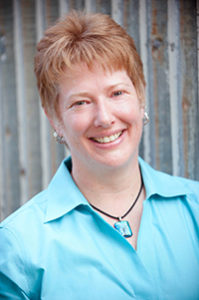 Rev. Carla Cheatham, MA, MDiv, PhD, TRT has served hospices as a chaplain and bereavement coordinator. She’s the Section Leader for the Spiritual Caregivers Section of the National Hospice and Palliative Care Organization and an adjunct professor at the Seminary of the Southwest. Through her Carla Cheatham Consulting Group, Carla provides training and consulting for professional caregivers nationwide. She is the author of Hospice Whispers: Stories of Life and its companion volume, Sharing Our Stories: A Hospice Whispers Grief Support Workbook. Her next book, On Showing Up with Suffering: Others’ and Our Own, is set to publish in 2017.
Rev. Carla Cheatham, MA, MDiv, PhD, TRT has served hospices as a chaplain and bereavement coordinator. She’s the Section Leader for the Spiritual Caregivers Section of the National Hospice and Palliative Care Organization and an adjunct professor at the Seminary of the Southwest. Through her Carla Cheatham Consulting Group, Carla provides training and consulting for professional caregivers nationwide. She is the author of Hospice Whispers: Stories of Life and its companion volume, Sharing Our Stories: A Hospice Whispers Grief Support Workbook. Her next book, On Showing Up with Suffering: Others’ and Our Own, is set to publish in 2017.

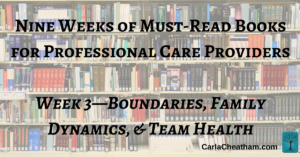

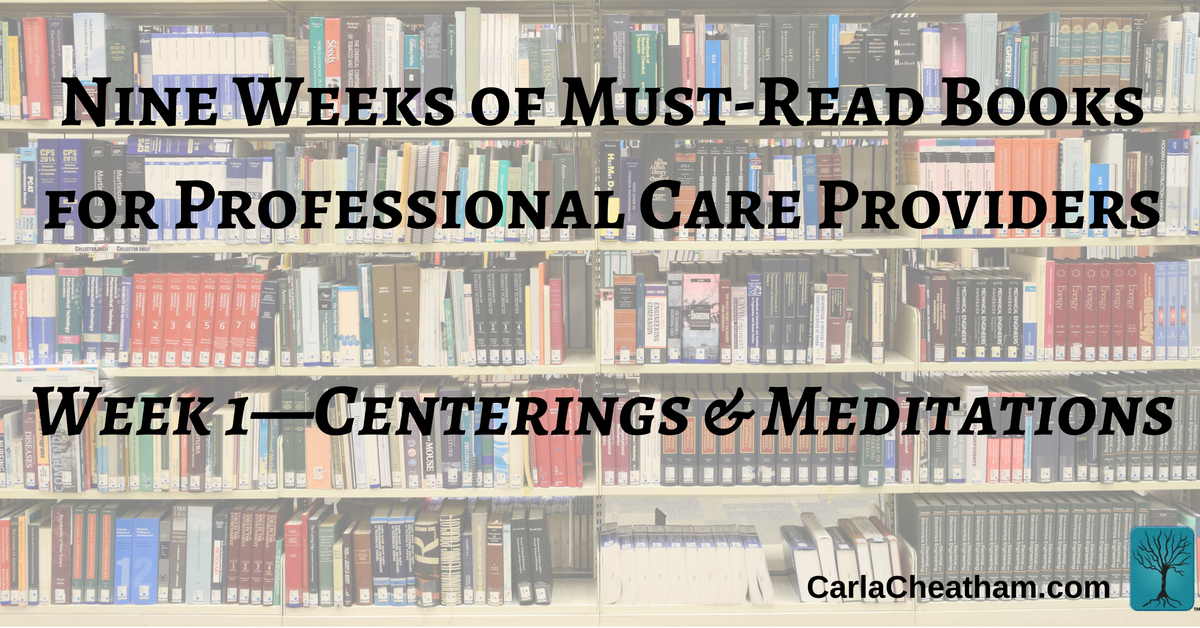
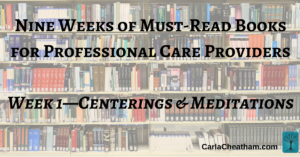
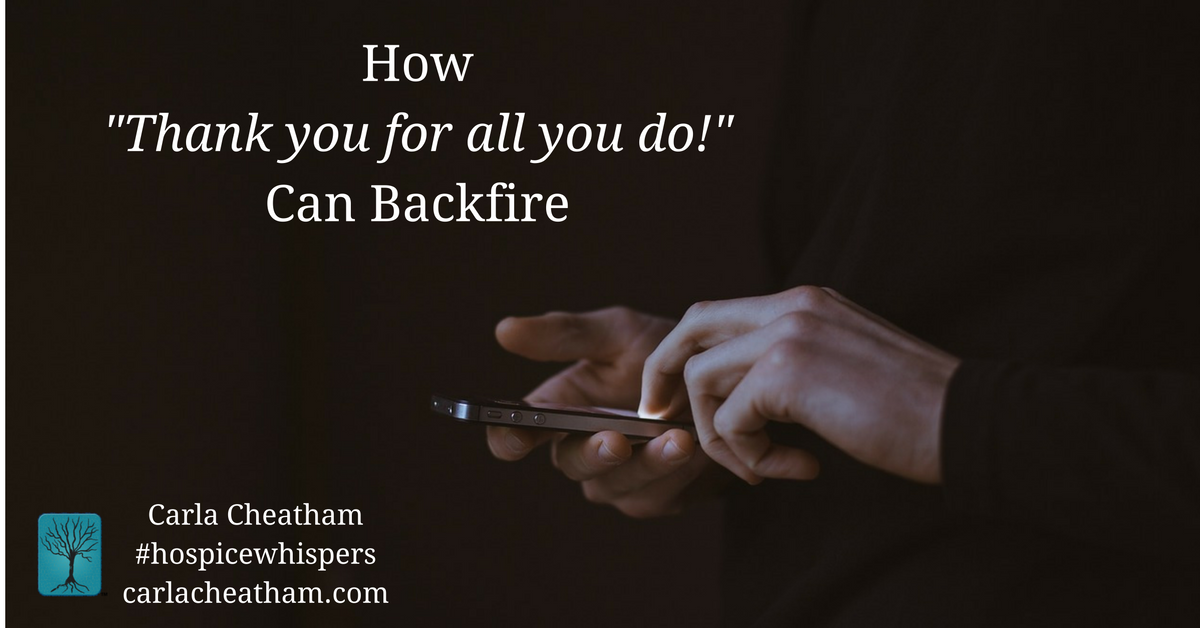
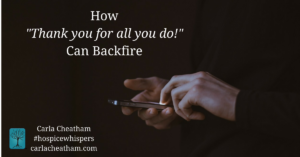



 After a career in social services and advanced degrees in Psychology, Health Education, and Divinity, Carla began working in hospice as a chaplain and bereavement coordinator. She now trains healthcare staff on a multitude of topics through her own
After a career in social services and advanced degrees in Psychology, Health Education, and Divinity, Carla began working in hospice as a chaplain and bereavement coordinator. She now trains healthcare staff on a multitude of topics through her own 








